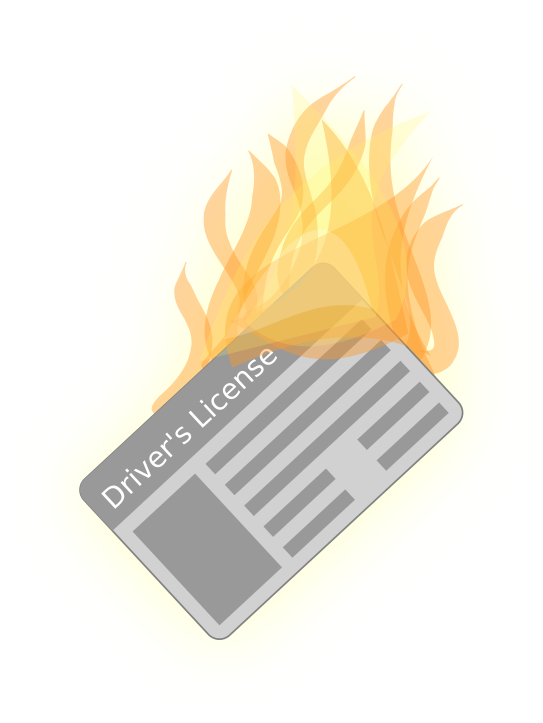
I still need to have my name changed legally.
In common law, your name is just whatever you’re known as. But that’s not good enough for bureaucracy, so at some point I’m going to have to go before a judge and convince him that I should be able to call myself by my name.

This is one of those things that’s more frustrating than it should be, because the state shouldn’t be involved in this. Yeah, the government needs to be able to identify people for taxes and stuff, but names are of no use for this purpose without a unique numeric ID, because more than one person can always have the same name. And if you have a unique ID, like a social security number, then the name is completely superfluous. I should be able to use whatever name I want to file taxes/open a bank account/etc, because they can already identify me by my SSN.
Then there’s identification documents. There’s a debate in the public sphere right now about whether a photo ID should be required to vote. Some people make the controversial-in-America argument that there should be a national ID card. Organizations like the ACLU oppose these measures because they believe they could be used for voter suppression or federal surveillance. But I take this a step further: government-issued photo IDs should not exist at all.
The most common type of photo ID in the US is called a driver’s license, which is kind of strange because it’s used for way more than that, and it has a bunch of information that doesn’t have anything to do with driving, like your hair color and your “sex.” This is supposedly so that police can check whether the person carrying the license is the same person who passed their drivers test, but it’s useless for that because people’s physical appearance can change easily, and the police have no way of knowing what “sex” you are without sexually assaulting you. So the main thing that these identifiers do is make it easier for people to harass you if your appearance doesn’t match your documents and give institutions an excuse for various forms of gatekeeping. For instance, I worked at a foundation that helped people in need—but for some stupid reason, we required a photo ID, and we wouldn’t accept passports or IDs from other states. If photo IDs were abolished, nonsense like this would be impossible.
A driver’s license should have nothing on it except a QR-code for a digitally-signed md5 hash¹ of your fingerprint. Police should carry a device that can scan your fingerprint, and check it against the hash on your license to confirm that you’re the person licensed to drive. They should do this without storing your fingerprints anywhere, because that’s a gross violation of your privacy. And that’s literally all you need! No photo, no sex, no eye color… just one piece of unique, verifiable identifying information. If someone wants to know what sex you are, they can just ask. And this would work better than the current system, because no one can impersonate you by stealing your ID and disguising themselves.
Birth certificates should only have your birth date and hashed¹ biodata for yourself and your parents. They should not have your place of birth, because your place of birth should not matter to anyone. Citizenship should be based on length of residence and passing a simple civics test which should be equally required for everyone, regardless of where they were born.
Passports should simply not exist. Travel is the birthright of anyone with feet (or anyone with ancestors who had feet, by right of inheritance).
1. A hash is a code produced by an algorithm that always gives the same results for the same data. For instance, the md5 hash of the word “astarte” is 57829a5002c70da23a3eb2eebe9db9a5. Ideally, a hashing operation is irreversible: you can get a hash from a piece of data, but you can’t reconstruct the data based on the hash. Taking the hash of your fingerprint would mean that anyone who could scan your fingerprint could reproduce the hash—meaning they could check that you’re the same person—but someone looking at the hash code on your document would have no way of telling what your fingerprints look like.